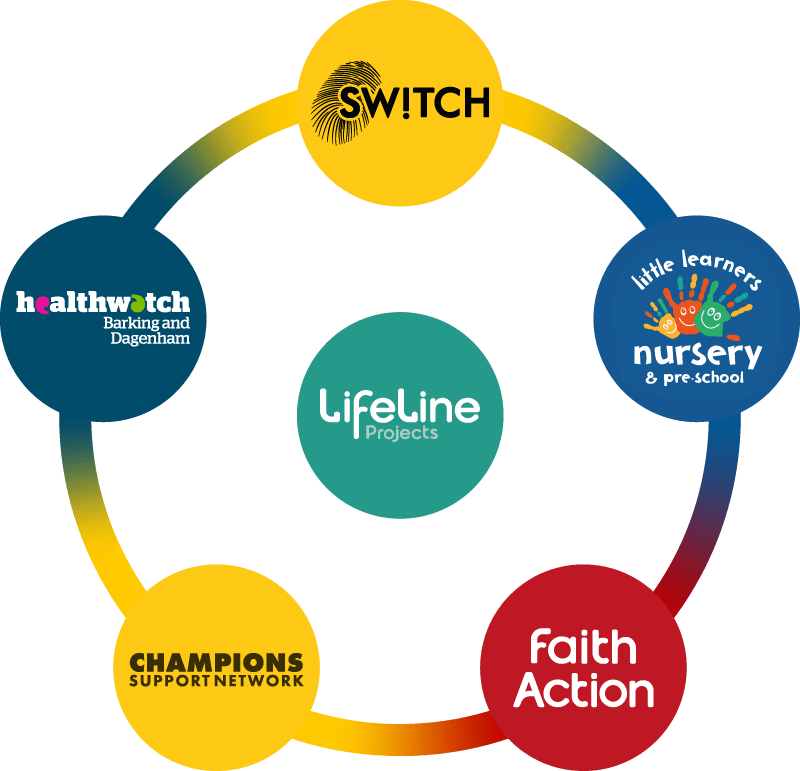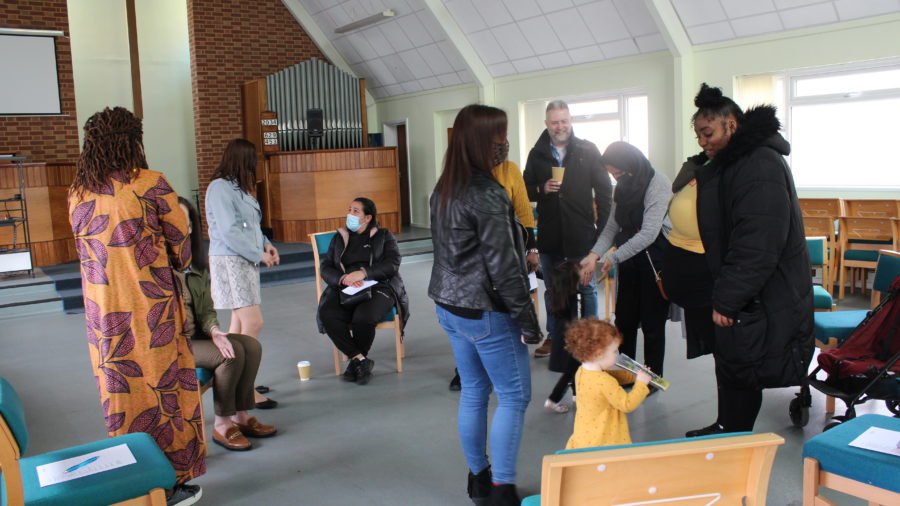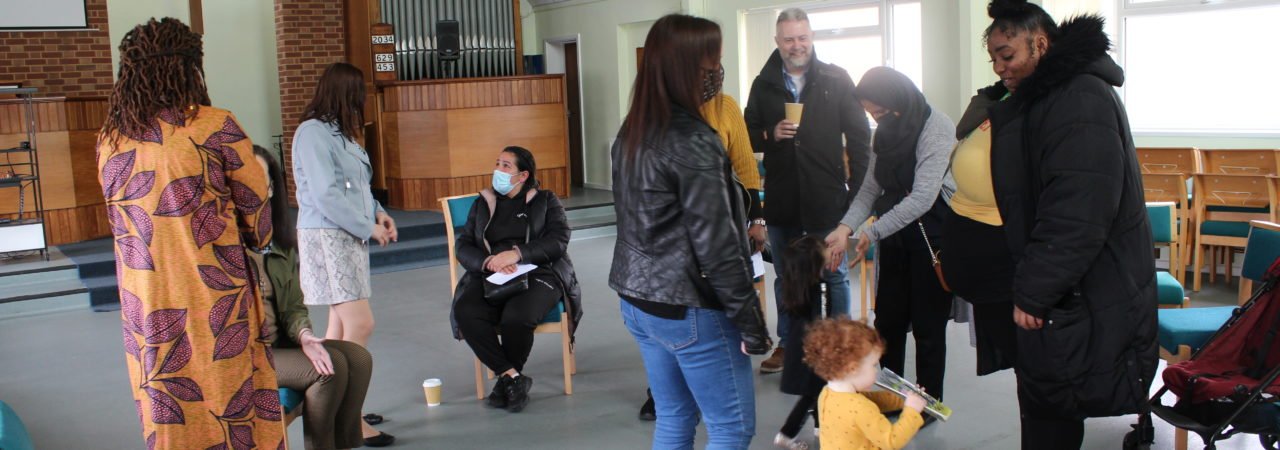The word expresses the African philosophy of wholeness – it presupposes that one’s humanity is bound up with nature and with other people in the community. A popular idiom in many African communities is ‘one is an animal but two is a community’: humanity comes through being part of the community; all human beings are members of an extended family.
A sense of extended family underpins our work. It is through becoming part of a community that long-term friendship and support becomes the norm as beneficiaries become volunteers and wider needs are addressed.
Key to this is our approach to joined-up services. Rather than offering silos of support, LifeLine takes a more integrated approach. Our Co-ordinators on the Champions Support Network for Parents and Carers, for example, work closely with SW!TCH’s Youth Outreach team, resulting in parents taking part in activities with young people and gaining understanding from their perspective and vice-versa, but also in cross-referrals between the staff teams, ensuring support is offered to parent and child.


The internal processes within Lifeline Projects foster an environment of co-working: there are updates on other projects at team meetings; cross-team management meetings; co-delivery of workshops between the youth and parenting teams, and cross-project recruitment targets, which encourage staff to recognise where more holistic support can be offered and would be of benefit.
With a strong sense of team across the whole organisation, we can have maximum impact by identifying quickly other sources of support and facilitating referrals in a warm and encouraging way through introductions via known individuals, which increases the likelihood of engagement. The impact of this wrap-around support is deeply significant.


I no longer feel lonely. I am now in the village of loved ones that I can relate with. My stress level has reduced, and when I do feel stressed, I have my mentors to discuss issues with. I feel comfortable asking for help.
Parent
Being part of community is more than being a recipient of services, our mentoring helps people recognise their skills and talents and encourages them to use them. SW!TCH Ambassadors, for example, are young leaders who start their own community projects and learn how to peer mentor others. With an integrated approach, there is opportunity for greater impact.
Seeing the positive change in their child as a result of having a mentor, some of our parent peer mentors were inspired to volunteer for the role in the Champions Support Network. Parent mentor Emma, for example, has a daughter who first got involved with Lifeline’s skating club in 2019 and is now a SW!TCH Ambassador.
Being part of a community where you can support others as well as access support has a significant impact. Champions Support Network Mentor Ash describes the negative impact having to shield had had on her mental health, which was transformed as she “became a lifeline” herself supporting others.
Lifeline allows individuals to connect with others no matter who you are and where you come from.
Ash, Mentor



